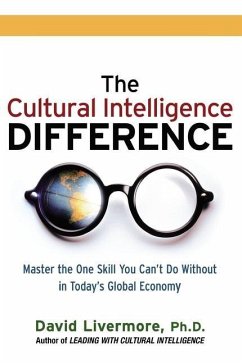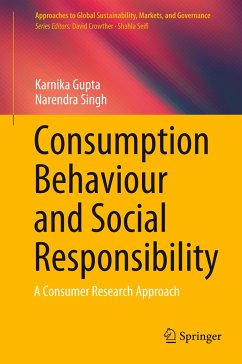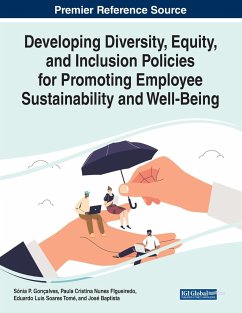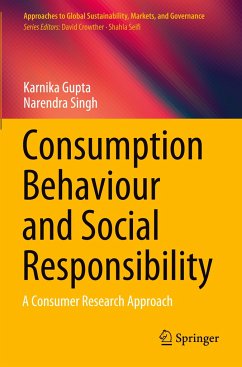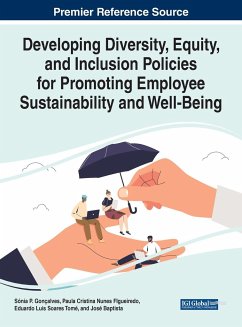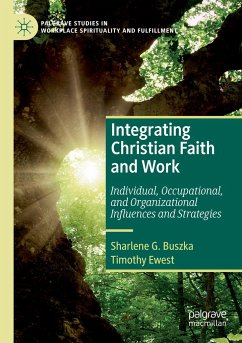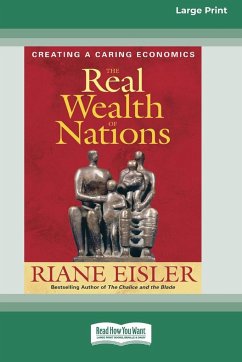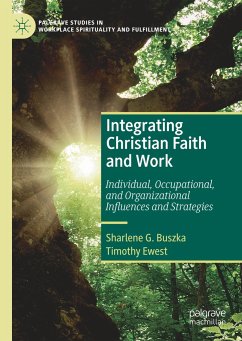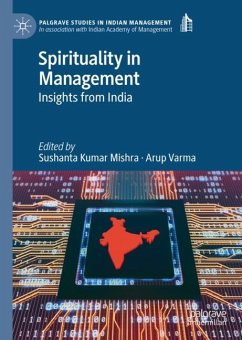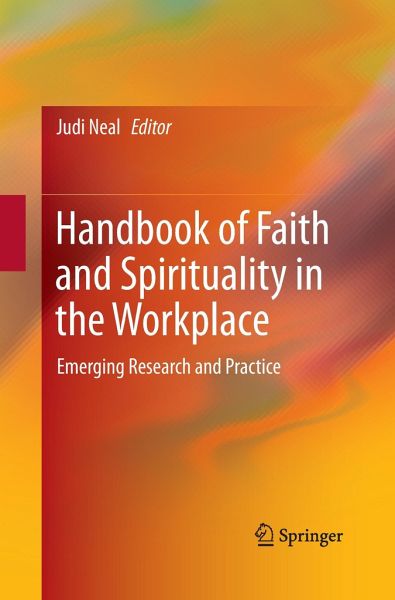
Handbook of Faith and Spirituality in the Workplace
Emerging Research and Practice
Herausgegeben: Neal, Judi
Versandkostenfrei!
Versandfertig in 6-10 Tagen
126,99 €
inkl. MwSt.

PAYBACK Punkte
63 °P sammeln!
While the field of management has developed as a research discipline over the last century, until the early 1990s there was essentially no acknowledgement that the human spirit plays an important role in the workplace. Over the past twenty years, the tide has begun to turn, as evidenced by the growing number of courses in academia and in corporate training, and an exponential increase in the publications emerging through creative interaction of scholars and practitioners in organizational behaviour, workplace diversity, sustainability, innovation, corporate governance, leadership, and corporat...
While the field of management has developed as a research discipline over the last century, until the early 1990s there was essentially no acknowledgement that the human spirit plays an important role in the workplace. Over the past twenty years, the tide has begun to turn, as evidenced by the growing number of courses in academia and in corporate training, and an exponential increase in the publications emerging through creative interaction of scholars and practitioners in organizational behaviour, workplace diversity, sustainability, innovation, corporate governance, leadership, and corporate wellness, as well as contributions by psychotherapists, theologians, anthropologists, educators, philosophers, and artists.
This Handbook is the most comprehensive collection to date of essays by the preeminent researchers and practitioners in faith and spirituality in the workplace, featuring not only the most current research and case examples, but visions of what will be, or should be, emerging over the horizon. It includes essays by the people who helped to pioneer the field as well as essays by up and coming young scholars. Among the questions and issues addressed:
· What does it mean to be a "spiritual" organization? How does this perspective challenge traditional approaches to the firm as a purely rational, profit-maximizing enterprise?
· Is faith and spirituality in the workplace a passing fad, or is there a substantial shift occurring in the business paradigm?
· How does this field inform emerging management disciplines such as sustainability, diversity, and social responsibility?
· In what ways are faith and spirituality in the workplace similar to progressive and innovative human resource practices. Does faith and spirituality in the workplace bring something additional to the conversation, and if so, what?
Theaim of The Handbook of Faith and Spirituality in the Workplace is to provide researchers, faculty, students, and practitioners with a broad overview of the field from a research perspective, while keeping an eye on building a bridge between scholarship and practice.
This Handbook is the most comprehensive collection to date of essays by the preeminent researchers and practitioners in faith and spirituality in the workplace, featuring not only the most current research and case examples, but visions of what will be, or should be, emerging over the horizon. It includes essays by the people who helped to pioneer the field as well as essays by up and coming young scholars. Among the questions and issues addressed:
· What does it mean to be a "spiritual" organization? How does this perspective challenge traditional approaches to the firm as a purely rational, profit-maximizing enterprise?
· Is faith and spirituality in the workplace a passing fad, or is there a substantial shift occurring in the business paradigm?
· How does this field inform emerging management disciplines such as sustainability, diversity, and social responsibility?
· In what ways are faith and spirituality in the workplace similar to progressive and innovative human resource practices. Does faith and spirituality in the workplace bring something additional to the conversation, and if so, what?
Theaim of The Handbook of Faith and Spirituality in the Workplace is to provide researchers, faculty, students, and practitioners with a broad overview of the field from a research perspective, while keeping an eye on building a bridge between scholarship and practice.





